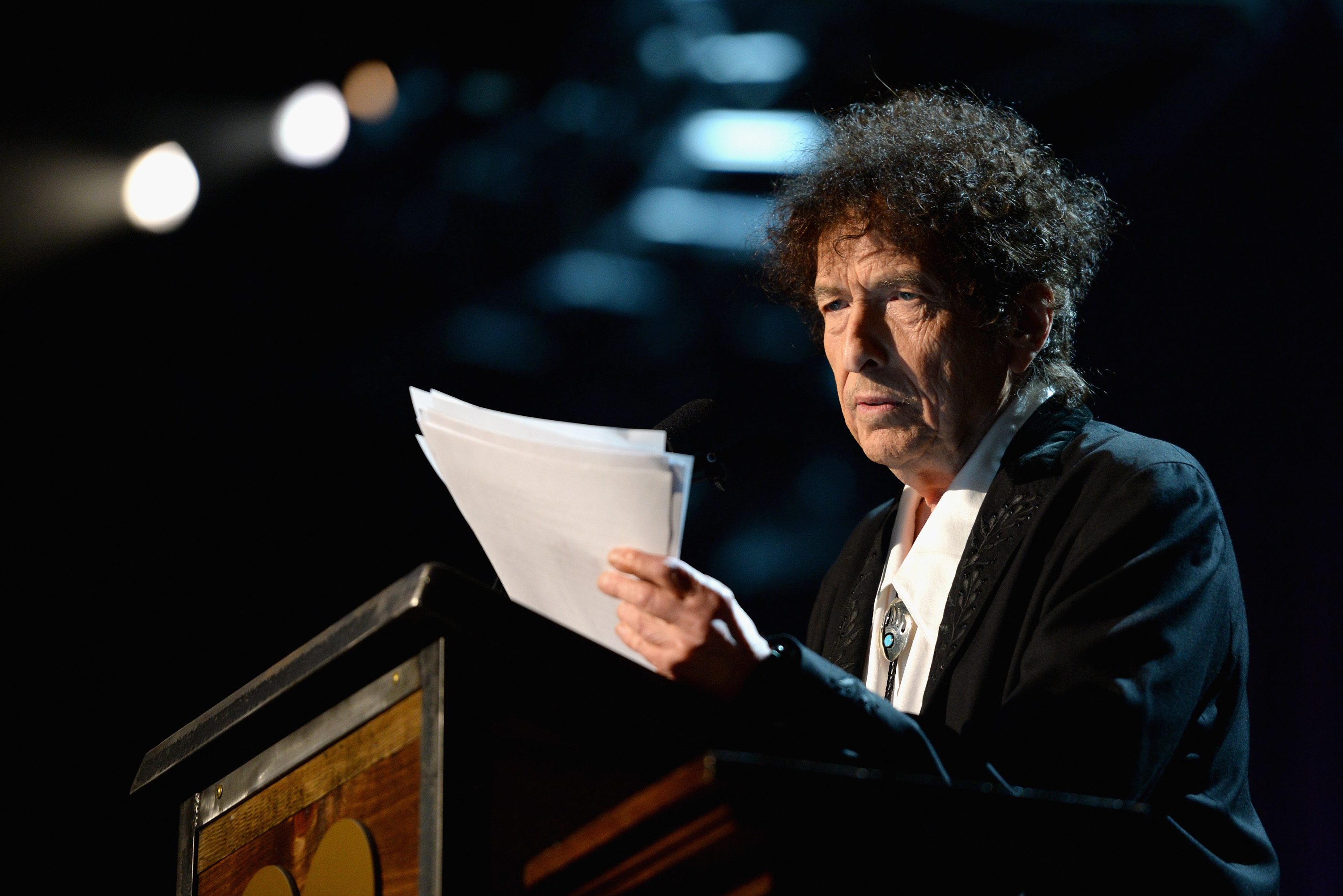Back in 2017, Josh Tillman told me he was planning on killing Father John Misty. The idea was for the singer-songwriter to ditch — or at the very least, externalize — the character he had cultivated on his first two records, 2012’s Fear Fun and 2015’s I Love You, Honeybear by staging an elaborate, Synecdoche, New York-esque musical production centered around his then-new album Pure Comedy that ended with him, Tillman, watching Father John Misty (played by someone other than him) drown in a boat he had ironically drilled holes into to “illustrate the innate falseness of boats.”
That musical never saw the light of day — Tillman later told The New Yorker that he scrapped it after suffering a panic attack onboard a flight to New York to audition dancers — but in many ways, it still feels as though the Father John Misty persona is dead anyway. The wry, swashbuckling character who would absolutely mercilessly mock the hell out of me for referring to him as “swashbuckling,” who could barely fire off a tweet without every music blog on the internet turning it into headline news, was already beginning to fade with Pure Comedy; that record, simultaneously his most personal and most outward-looking to that point, spent more time wrestling with existential dread than it did playing into expectations. In 2018, he put out the understated God’s Favorite Customer, deleted all his social media and stopped talking to the press. (Tillman hasn’t given an interview since the Pure Comedy album cycle, and he’s similarly turned down all requests to talk about his new record, Chloë And The Next 20th Century, this year.) It was, perhaps, a less dramatic death than drowning in his own sense of irony, but at some point, the Father John Misty we all came to know and love a decade ago quietly passed on.
That’s not to say, of course, that the music he’s currently making isn’t equally great. Chloë And The Next 20th Century is markedly different, however, full of horns and strings and nods to Old Hollywood. With the exception of a few tracks that feel more in line with what Father John Misty fans should be used to, it’s a departure both sonically (there’s even a bossa nova track) and lyrically. The Misty schtick is dialed back, and the songs are mostly character studies that serve as a reminder of how skilled a writer Tillman actually is. His wit is still obvious, of course, and Chloë is still full of lines that’ll make you smile — even when they’re pointing out devastating truths — but it feels less overtly jokey than his previous four records.
Instead, we’re presented with some rich narratives. The deceptively upbeat opening track sounds like something Fred Astaire might’ve danced to but closes on a jarring note, with the titular character leaping from a balcony at her 31st birthday party. “We Could Be Strangers” starts off sounding like a more traditional tale of fleeting romance before pulling the rug out and revealing that the two lovers are actually car-crash victims trying to make the most of their final moments as they lie bleeding on the street. (Tillman’s gallows humor really shines on this one, but this time around he gives his non-FJM characters all the best lines, like when the dying woman in the road quips, “No point speeding back to your place/I’ve got no other plans.”) Even tracks like “Funny Girl,” more portrait than plot-driven, are full of revealing details. (“You look so unassuming right up until/The room you’re captivating starts to fill with gut-busting laughter/You’re transformed into a five-foot Cleopatra,” he sings.)
“Goodbye Mr. Blue,” which calls to mind Harry Nilsson’s “Everybody’s Talkin’,” tells the story of a former couple reunited by their shared grief over their dead cat. (“Do you swear it’s not the cat?” Tillman sings. “You don’t have to answer that, I’ll just make do.”) The catchy “Q4” is probably the most stereotypically Father John Misty of all the songs. It skewers Simone, an aspiring author trying to get her memoir sold — “It was just the thing for their Q4, ‘deeply funny’ was the rave refrain” — who eventually decides to exploit her sister’s recent death to boost her career. The narcissism of artists is a topic Tillman’s been grappling with for a decade now, with tracks like “I’m Writing a Novel” and “Now I’m Learning to Love the War,” where he tries not to think about “the truly staggering amount of oil that it takes to make a record” and grapples with mankind’s urge to “leave behind something that won’t decompose.” “Q4” similarly questions the price we pay for creative glory when Simone’s book milking her sister’s death is a hit, complete with a film adaptation that was “a total mess,” but we learn that she’s now no longer allowed to visit her brother unsupervised.
Chloë And The Next 20th Century ends with a bit of an outlier, the seven-minute “The Next 20th Century,” which ties these concerns about whether art (specifically his art, this time) has any social value beyond feeding his own ego with some of the more apocalyptic themes he explored on Pure Comedy. It’s a hell of a song, one whose very existence makes the case that there is inherent value in creating, even when the world is burning. “Now things keep getting worse while staying so eerily the same,” he laments, before eventually concluding that if we’re destined to keep making the same mistakes and reliving the horrors of the 20th Century over and over again, we might as well find a little comfort in the beauty that was produced then, too.”I don’t know ‘bout you,” he concludes, “But I’ll take the love songs / if this century’s here to stay / I don’t know ‘bout you / but I’ll take the love songs / and the great distance that they came.”
Ultimately, Chloë And The Next 20th Century may be polarizing to some Father John Misty fans. It’s a bit of a slow burn, but it’s one that rewards repeat listens. Those who valued the persona over the music will be disappointed to find out how absent their beloved character is this time around — but can we really call those people true fans, anyway?
“I clown on myself out of such self-hatred all the time, like so much of my humor is informed by how uncomfortable I am with being in the position that I’m in and just being spiteful to myself,” Tillman told me in 2017. “And that kind of has created a sort of narrow persona. Where people think of me as just like — that I don’t take anything seriously, that my music doesn’t mean anything to me, that I’m just like fucking around, and that there’s no artistry or something, you know? When I’m probably the most insufferably monomaniacal about my … art — we’ll just call it that. Like, it totally consumes me. You can’t divorce me from what I do. It is the substance of who I am.”
In that sense, Chloë And The Next 20th Century feels like it was a long time coming. Tillman was right that the Father John Misty character got away from him at some point and overshadowed his incredible musicianship. For a while, we all got so wrapped up in the persona that we almost overlooked the fact that he’s responsible for some of the best albums of the 2010s, and five albums deep now, the guy is yet to make a bad record. This latest one is excellent, and if anything, it serves as proof that Tillman doesn’t need the crutch of the FJM role. Maybe now, five years after he first contemplated killing him, he can finally let Father John Misty rest in peace.
This article was featured in the InsideHook newsletter. Sign up now.





















